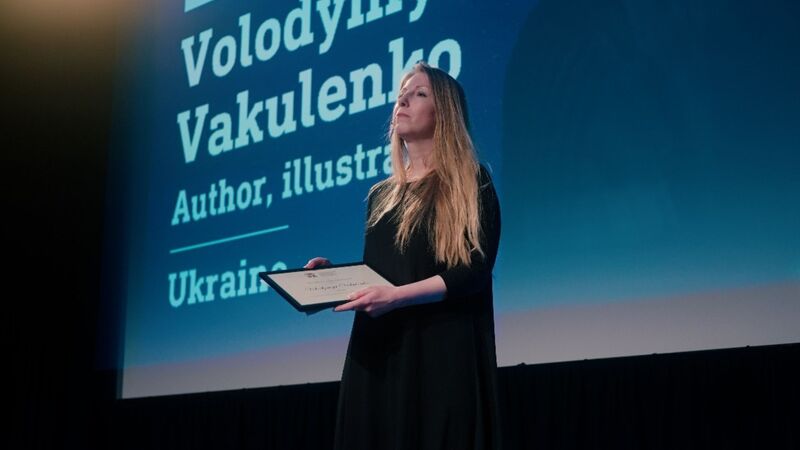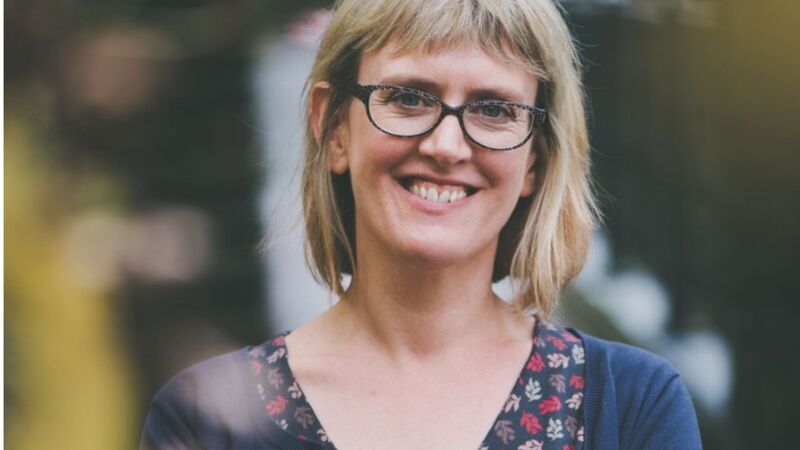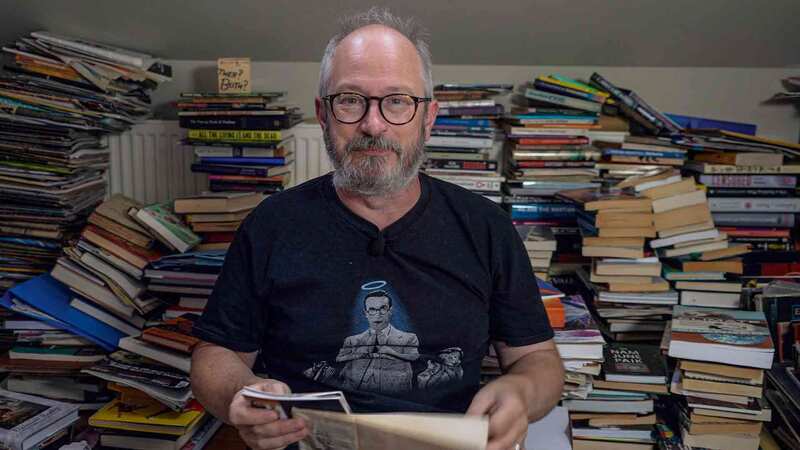You are viewing your 1 free article this month. Login to read more articles.
Bring back Kate Greenaway
The Kate Greenaway Medal rebrand is misguided, and many are calling for her name to be restored.
On 19 July 2023 author Patrick Ness, Tweeted: "I know the librarians who run the medals do their absolute damnedest to make them the best awards in the world (which they are), but I too would love to see the Kate Greenaway name return. It’s such a specific honour on its own and honours a foundational female illustrator."
Ness’s book, A Monster Calls, won both the Carnegie and the Kate Greenaway Medals in 2011. He not only tweeted this message, he signed a petition that Tamsin Rosewell and I put up on 17th July in response to CILIP (formerly the Library Association)’s decision to change the oldest British literary award focused on illustration, named after the beloved British artist Kate Greenaway, to the "Yoto Carnegie medal for illustration". Tamsin Rosewell is an illustrator and a bookseller. I, Rose Roberto, am a librarian and a historian.
The press release issued by CILIP on 19th July in response to the Kate Greenaway petition after it had garnered more than 1,000 signatures, stated two things that Rosewell and I still take issue with:
"In 2020, we decided to bring all elements of the awards together into a single ‘family’, in order to bring clarity to the awards structure for young readers and to help achieve CILIP’s aim of placing librarians front and centre of the awards; by more strongly emphasising the library-led origins.
"This process involved a ‘brand audit’ which was conducted in extensive consultation with past judges who are members of CILIP’s Youth Libraries Group (YLG). All brand consultancy was undertaken independently of any corporate investment. The new brand was developed and launched in September 2022."
Named awards have meaning. Individuals who have awards named after them should embody the values of the organisation they represent and/or the spirit for which an award was given. In 2019, the American Library Association (ALA) voted to remove Melvil Dewey’s name from their leadership award because, while he did many great things for the professionalisation of libraries and librarianship, he was racist, he was anti-Semitic, and he was an extreme harasser of women at a time when that type of behaviour was considered acceptable. As a name, ‘Melvil Dewey’ is arguable more representative of ‘libraries’ and librarians than anyone else historically, including Andrew Carnegie. However, his behaviour around women was not just unprofessional, it was repugnant. During his lifetime he was actually asked to leave the ALA—an organisation that he helped found.
Named awards have meaning. Individuals who have awards named after them should embody the values of the organisation they represent and/or the spirit for which an award was given
Kate Greenaway did nothing wrong in any comparable way. Many illustrators not only relate to her work and feel inspired by it — she, as a person, represents real struggles with whom illustrators today can relate. As a woman living a century ago, she lacked many opportunities, especially educational ones, that men were given more readily. This petition reflects the fact that writers and illustrators of all genders want this award to be named after a woman. It also shows that they want it to be named after a fellow illustrator. The Kate Greenaway Medal has always been a privilege for librarians to give to illustrators, recognising their talent and their specific work in a particular year. CILIP’s argument that librarians now somehow need to make literature awards about libraries is self-aggrandising and utterly bizarre.
Last year I co-edited a book, Women in Print: Design and Identities with Artemis Alexiou, that only scratches the surface of all the talented women in the publishing industry who were successful, but worked in quiet obscurity. The fact that we know about Greenaway’s life at all hints at the lives of other historical artists that we will never know. Additionally, Greenaway’s name has been a constant and consistent example for many aspiring illustrators and writers in the English speaking world.
Canadian Duncan Weller writes: "I have heard of the Kate Greenaway Medal, probably as early as my teenage years when I first thought of becoming a writer and illustrator of children’s picture[s]. It is a great mistake to change this name. Female illustrators need more recognition and especially those as qualified as Kate Greenaway. In good conscience I hope you consider changing the name back to a person who truly better personifies what this award stands for."
CILIP has been working with the firm Agile Ideas, a marketing agency that is responsible for branding, running advertising campaigns, and perhaps refashioning the gravitas of CILIP’s highest literary and artistic medals into a "family" of awards. This "brand audit" seems ignorant of who the actual Kate Greenaway Medal stakeholders are. The audience of the Greenaway Medal are not imagined five-year-old consumers, with short attention spans, who can be taught to pronounce "Carnegie" but not "Kate Greenaway". The Greenaway name has a cultural cache, built over decades. Illustrators, writers, librarians, historians, students, scholars of English around the world and parents are the true stakeholders of the CILIP medals.
Oxford-based Helen Cooper posts: "I write and illustrate. They are entirely different. And for some reason one is often seen as more important than the other. I wonder if giving both the awards the same name was a misguided attempt to adjust that? I think it will have the opposite effect so am signing the petition. The Kate Greenaway award is so important for illustrators as a standalone award. We don’t want it to be the lesser of the Carnegie’s — which it almost certainly will become."
Another petition post states stronger sentiments: "The Greenaway Medal celebrates a working-class woman pioneer. Like the Fawcett Society or the Garrett Anderson mentoring scheme, it is vital it reminds us of the woman it commemorates. It is not a branding opportunity for corporations or magnates. Women have too few statues, too few dedicated awards. Illustrators remain frequently unknown and underpaid. This renaming was crass and ill-conceived and the former title should be restored at once."
Nottinghamshire-based librarian Emma Halford writes: "This will always be The Greenaway Medal to me. So many past winners have specifically commented on the honour of winning an award bearing Kate Greenaway’s name. Long may she continue to enrich and inspire book lovers and illustrators everywhere."
Had any sort of proper research been conducted before the name change (ironically, the kind of research that librarians excel at), launching a campaign to remove the Greenaway name would not have occurred.
Cambridge-based librarian Susanne Jennings wondered how CILIP could make such "decisions without wide-ranging consultation". London-based Phil Bradley wrote: "This is an absolute disgrace and very disappointing the CILIP has made this decision. It is wholly inappropriate and completely out of step with how members and wider society feel." Scotland-based Moyra Hood also writes, "As a retired librarian and former judge on the Carnegie and Greenaway panels, I support this petition. Hugely disappointing decision by CILIP."
It is troubling is that the CILIP’s rebranding campaign was launched in September 2022, with little fanfare, and little consultation. There were many surprised librarians who contacted both Rosewell and I personally complaining of a lack of transparency in this decision.
This year I ran a CILIP Shadowing awards scheme at the Bishop Grosseteste University BGU Library in Lincoln. BGU houses one of the largest children’s literature collections in the country, and has been collecting two copies of Greenaway and Carnegie Medal winning books since the 1950s. During the Shadowing scheme process, I first became aware that Kate Greenaway’s name had been removed from the medal. When I sent CILIP an email querying this decision, requesting that the decision be reversed back to the 2022 award name which was "Yoto Kate Greenaway", I heard nothing back from CILIP for weeks.
While waiting for a response, Rosewell and I decided to launch our petition. We were honoured that the first signatory was Jackie Morris, who won the Kate Greenaway Medal in 2019. James Mayhew eloquently explains why we undertook this campaign and why so many have signed the petition. "Kate Greenaway was a pioneering woman," he said. "It is right and proper that she is remembered, celebrated, and has her name attached to this important prize. Losing this link with an actual illustrator greatly lessens the significance of such an award. Her name should be reinstated."
If you sign, you’ll be joining others such as Philip Pullman, Frank Cottrell Boyce, Jackie Morris, Dapo Adeola, Rob Biddulph, Lydia Monks, Thomas Taylor, Candy Gorlay and Patrick Ness.
www.ipetitions.com/petition/bring-back-the-kate-greenaway-medal

















